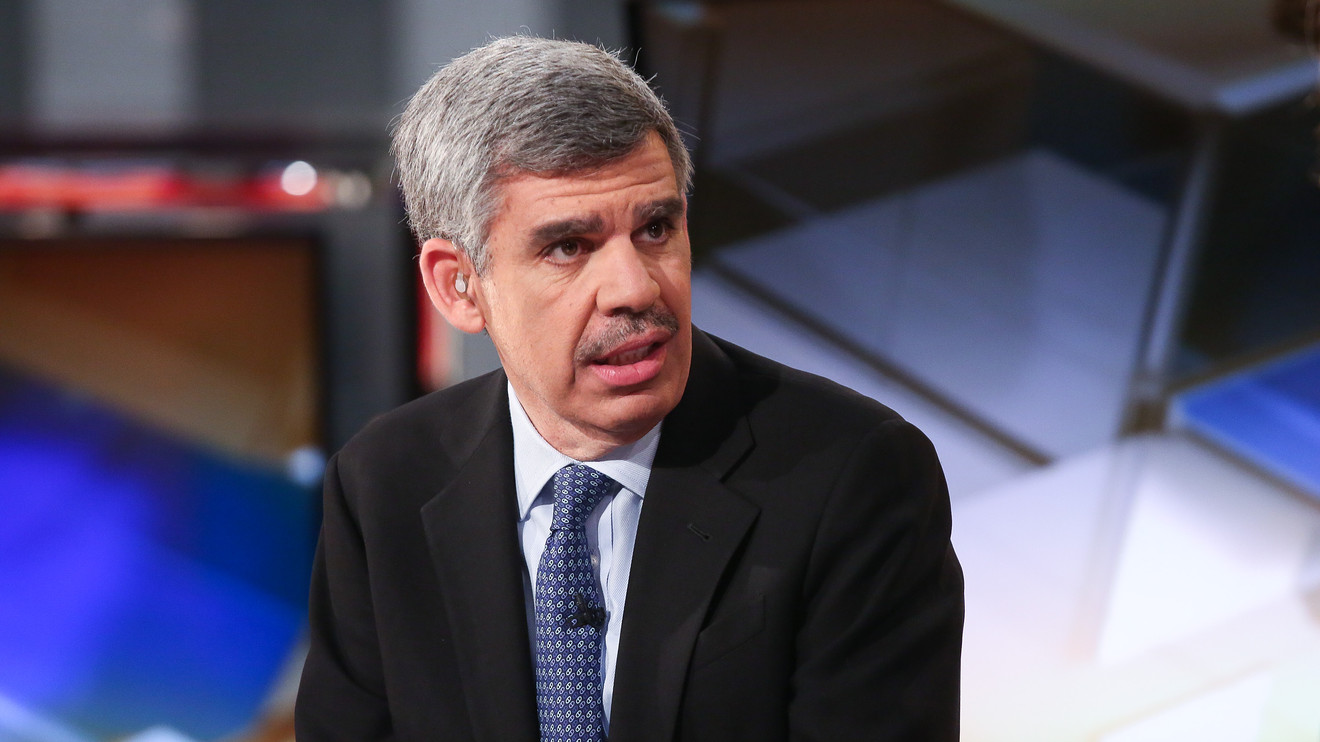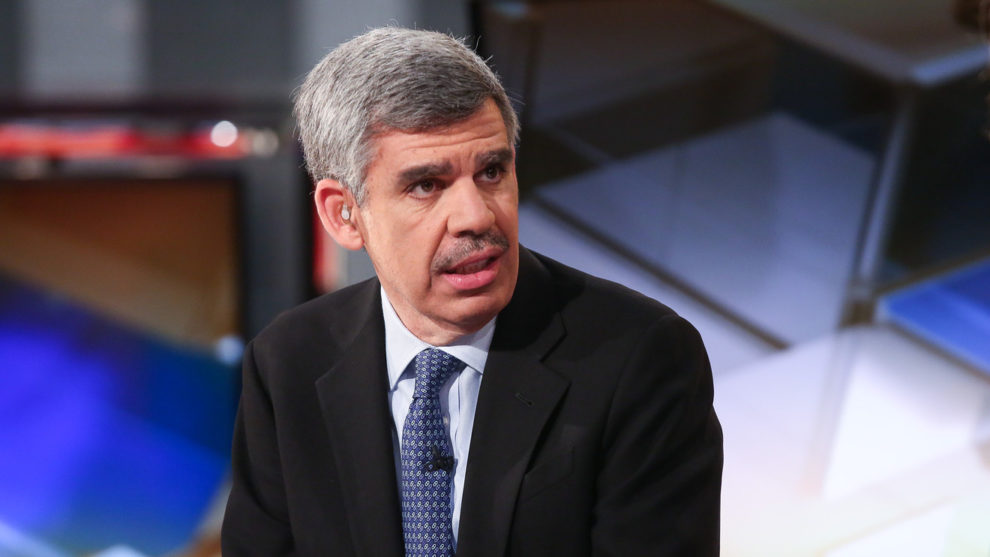
Mohamed El-Erian doesn’t appear impressed by the bounce shaping up for U.S. stocks on Monday.
Investors ‘need to decide if they want to opt for more of the same, by continuing to implement an investment playbook that has served them well, or if they want to treat the viral outbreak for what it is — a big economic shock that could derail global growth and shake markets out of their “buy-the-dip” conditioning.’
In a guest column in the Financial Times (paywall), the widely followed investor and chief economic adviser to Allianz, urged against buying the dip when it comes to the stock-market reaction to the spreading coronavirus, arguing that the long-running play of dismissing downbeat fundamentals on expectations central banks will be able to ride to the rescue could prove misguided in the current environment.
See: Why the coronavirus ‘poses a more significant threat’ to markets, economy than past epidemics
For now, U.S. investors appeared intent to stick to the long-running “BTD,” or buy-the-dip, playbook, with the Dow Jones Industrial Average DJIA, +0.54% headed higher, after a 600-point skid on Friday, with the blue-chip gauge and the S&P 500 SPX, +0.75% both turning negative for January.
El-Erian contends that the effects of the deadly outbreak are substantial in China and will cascade not only through the world’s second-largest economy but will also slow global growth. A weakening China is a problem for Europe, he warns, where the European Central Bank is largely out of monetary-policy ammunition to fight a downturn.
Economic preview: Coronavirus spreads damage to Wall Street — could the U.S. economy be next?
China’s National Health Commission on Sunday said cases of the new virus reached 17,205, while the death toll exceeds 360. Cases have also been reported outside the country, with the World Health Organization last week declaring an international health emergency.
For markets, the coronavirus could mark a “structural break,” El-Erian said, in the form of “a big enough shock that fundamentally shifts sentiment.”
El-Erian argued that markets have been “underpinned by the belief that central banks were always willing and able to repress volatility and boost asset prices. That fueled investors’ fear of missing out on a seemingly never-ending rally.”
The multiyear gap between elevated asset prices and weaker economic conditions “is becoming increasingly unsustainable,” he wrote, with the global economy and markets “nearing the neck of a T-junction.”
“What comes after that involves a contrast, depending on how policy makers respond,” El-Erian said. “One way involves recession, financial instability and even more complicated politics; the other, a genuine growth process that validates elevated asset prices in an orderly fashion and opens the way for more constructive politics.”











Add Comment